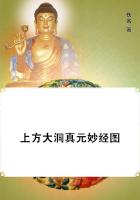Before a month had passed, Mr. Twing's success was secure and established. So were a few of the changes he had quietly instituted. The devotional singing and Scripture reading which had excited the discontent of the Pike County children and their parents was not discontinued, but half an hour before recess was given up to some secular choruses, patriotic or topical, in which the little ones under Twing's really wonderful practical tuition exhibited such quick and pleasing proficiency, that a certain negro minstrel camp-meeting song attained sufficient popularity to be lifted by general accord to promotion to the devotional exercises, where it eventually ousted the objectionable "Hebrew children" on the question of melody alone. Grammar was still taught at Pine Clearing School in spite of the Hardees and Mackinnons, but Twing had managed to import into the cognate exercises of recitation a wonderful degree of enthusiasm and excellence. Dialectical Pike County, that had refused to recognize the governing powers of the nominative case, nevertheless came out strong in classical elocution, and Tom Hardee, who had delivered his ungrammatical protest on behalf of Pike County, was no less strong, if more elegant, in his impeachment of Warren Hastings as Edmund Burke, with the equal sanction of his parents. The trustees, Sperry and Jackson, had marveled, but were glad enough to accept the popular verdict--only Mr. Peaseley still retained an attitude of martyr-like forbearance and fatigued toleration towards the new assistant and his changes. As to Mrs. Martin, she seemed to accept the work of Mr. Twing after his own definition of it--as of a masculine quality ill-suited to a lady's tastes and inclinations; but it was noticeable that while she had at first repelled any criticism of him whatever, she had lately been given to explaining his position to her friends, and had spoken of him with somewhat labored and ostentatious patronage. Yet when they were alone together she frankly found him very amusing, and his presumption and vulgarity so clearly unintentional that it no longer offended her. They were good friends without having any confidences beyond the duties of the school; she had asked no further explanation of the fact that he had been selected by Mr. Barstow without reference to any special antecedent training. What his actual antecedents were she had never cared to know, nor he apparently to reveal; that he had been engaged in some other occupations of superior or inferior quality would not have been remarkable in a community where the principal lawyer had been a soldier, and the miller a doctor. The fact that he admired her was plain enough to HER; that it pleased her, but carried with it no ulterior thought or responsibility, might have been equally clear to others. Perhaps it was so to HIM.
Howbeit, this easy mutual intercourse was one day interrupted by what seemed a trifling incident. The piano, which Mr. Barstow had promised, duly made its appearance in the schoolhouse, to the delight of the scholars and the gentle satisfaction of Mrs. Martin, who, in addition to the rudimentary musical instruction of the younger girls, occasionally played upon it herself in a prim, refined, and conscientious fashion. To this, when she was alone after school hours, she sometimes added a faint, colorless voice of limited range and gentlewomanly expression. It was on one of these occasions that Twing, becoming an accidental auditor of this chaste, sad piping, was not only permitted to remain to hear the end of a love song of strictly guarded passion in the subjunctive mood, but at the close was invited to try his hand--a quick, if not a cultivated one--at the instrument. He did so. Like her, he added his voice. Like hers, it was a love song. But there the similitude ended. Negro in dialect, illiterate in construction, idiotic in passion, and presumably addressed to the "Rose of Alabama," in the very extravagance of its childish infatuation it might have been a mockery of the schoolmistress's song but for one tremendous fact! In unrestrained feeling, pathetic yearning, and exquisite tenderness of expression, it was unmistakably and appallingly personal and sincere. It was true the lips spoken of were "lubly," the eyes alluded to were like "lightenin' bugs," but from the voice and gestures of the singer Mrs. Martin confusedly felt that they were intended for HERS, and even the refrain that "she dressed so neat and looked so sweet" was glaringly allusive to her own modish mourning. Alternately flushing and paling, with a hysteric smile hovering round her small reserved mouth, the unfortunate gentlewoman was fain to turn to the window to keep her countenance until it was concluded. She did not ask him to repeat it, nor did she again subject herself to this palpable serenade, but a few days afterwards, as she was idly striking the keys in the interval of a music lesson, one of her little pupils broke out, "Why, Mrs. Martin, if yo ain't a pickin' out that pow'ful pretty tune that Mr. Twing sings!"
Nevertheless, when Twing, a week or two later, suggested that he might sing the same song as a solo at a certain performance to be given by the school children in aid of a local charity, she drily intimated that it was hardly of a character to suit the entertainment. "But," she added, more gently, "you recite so well; why not give a recitation?"
He looked at her with questioning and troubled eyes,--the one expression he seemed to have lately acquired. "But that would be IN PUBLIC! There'll be a lot of people there," he said doubtfully.















